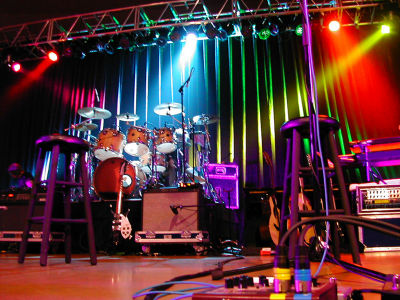What is Marey, a video generation AI trained only on properly licensed material?

Content created by generative AI is so prevalent that hardly a day goes by without seeing it on social media or work-sharing sites, but there are still many issues with incorporating it into commercial works, such as copyright issues and the possibility of taking away opportunities for traditional creators. Asteria , a production company founded by film director Bryn Mooser, has built Marey , an 'ethical generative AI' trained only on properly licensed materials, and Mooser talks about its features and the problems that still exist.
Hollywood's pivot to AI video has a prompting problem | The Verge

AI that generates movies from text prompts or a single image, such as Google's movie-making tool ' Flow ' and OpenAI's ' Sora ,' which generates videos by simulating the laws of physics, is developing rapidly. OpenAI is pitching Sora to Hollywood film studios, media executives, and talent agencies for use in film production, and video generation AI is also making its way into commercial films, with a short film made with Sora being screened at the TriBeCa Film Festival in Manhattan, USA.
OpenAI is reportedly selling its movie-generating AI 'Sora' to Hollywood - GIGAZINE

In Hollywood, there has been a backlash against generative AI, including strikes demanding that 'the use of AI that takes away the jobs of screenwriters and actors be regulated.' In response, OpenAI has stated that it will take safety measures, such as 'working with a red team of experts in areas such as misinformation, hate content, and bias to test the models adversarially,' and has stated that it will include elements in the metadata that indicate whether a movie was generated by Sora.
One of the concerns about video generation AI is the lack of transparency in the data used to train the AI model. If the training data contained copyrighted movies or footage of people who did not have permission to use it, using the AI could lead to lawsuits. To avoid such issues, Marey is a generative model that was built 'ethically' unlike many other AI companies.

AI research company Moonvalley and artist-led generative AI film and animation studio Asteria announced a partnership in December 2024 to 'build the entertainment industry's first clean foundational AI model.' The Moonvalley and Asteria AI model is named 'Marey' after Etienne-Jules Marey, a pioneer of photography who has had a major impact on film history. Below is a concept movie released by Asteria.
According to Asteria founder and filmmaker Mooser, companies trying to sell AI to Hollywood failed because it was clear that no one at the tech companies had experience in filmmaking. In Mooser's view, tech companies were in such a rush to standardize generative AI that they confused a good use of AI, like using AI to recreate a singer's voice, with a video output that was still far from perfect.
'When we think about Hollywood's use of generative AI from a filmmaking perspective, a few things became clear to us. One is that the level of control that filmmakers want is often down to the pixel level, so general generative AI designs don't work,' said Mooser. So Asteria uses its core generative model, Marey, to create new models specific to projects, trained on original visual material. This allows artists to build models that can generate a variety of assets in their own style, giving them fine control.
Asteria is achieving 'ethical generative AI' by paying licensing fees to the creators of the materials it trains, and is exploring a revenue sharing system separate from licensing fees and the possibility of allowing filmmakers to retain partial ownership of their custom models depending on the arrangement.

Mooser says that Marey is a tool that 'democratizes' filmmaking, a term often used by those who advocate generative AI. By using generative AI to assist in the creation of films, it is possible to produce with smaller budgets and fewer staff, overcoming the challenges that are difficult for anyone other than a large studio to produce a film.
One problem that has emerged with the 'democratization' of AI is the concern that 'AI will cause unemployment.' In fact, after several weeks of failed negotiations between the Screen Actors Guild, the American Federation of Television and Radio Artists (SAG-AFTRA), and the Alliance of Motion Picture and Television Producers (AMPTP) in June 2023, actors and staff belonging to SAG-AFTRA went on strike to demand wage increases, improvements to working conditions, and 'regulations on the use of AI that takes away the jobs of screenwriters and actors.' SAG-AFTRA has also conducted strikes calling for improved pay for voice actors in games and stronger protection against AI, which ended on June 11, 2025 with an emphasis on the informed consent process in various uses of AI.
American game voice actors' strike against AI ends - GIGAZINE

Mooser acknowledged there are concerns that generative AI will replace jobs in the industry, but said, 'Just as filmmaking methods have shifted away from film editing, there is an opportunity for filmmakers and artists who are able to adapt to take advantage of this technology. What's really important is that we, as an industry, understand what's good and what's bad about this technology, what helps us tell stories and what's dangerous about it.'
Related Posts:







